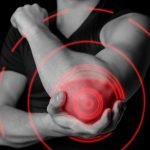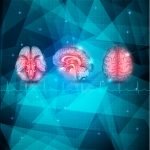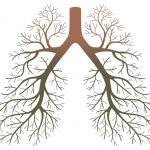Transcranial Magnetic Stimulation for Anxiety
FDA Approved Non-Invasive Device for Treating Anxiety
Transcranial magnetic stimulation (TMS) is a non-invasive treatment that is FDA approved for the treatment of depression, even major depressive disorder. It is also now being researched as a possible effective treatment for anxiety. A recent study from Germany has shown favorable results in people with phobic anxiety (a fear of something which causes anxiety).1 The study was specifically tailored to show that using TMS can help increase the effectivity of cognitive behavioral therapy (CBT), which is a mainstay in the treatment of phobias.
How TMS Works
TMS involves using a magnetic coil to create an electromagnetic field near a certain area of the brain. The electromagnetic stimuli actually turns on different parts of the brain, and it is thought that it enhances learning. From here it is easier for individuals to utilize the tools used as a part of CBT to overcome their anxiety. It is also thought that TMS influences neurotransmitter release2, some say dopamine and serotonin and in some electrostimulation studies increases in melatonin and decrease cortisol have been seen.2 There is not a lot of research on the mechanism of action of TMS, other than the mechanical/electrical induction of action potentials inside the brain. The specific part of the brain that is targeted is the frontal lobe, which is thought to be responsible for processing anxiety.
TMS Study Results
The current study looked at 39 individuals with a phobia to heights. Using virtual reality technology the study placed half the study in a simulated high environment after undergoing TMS therapy for 20 minutes. A control group had a placebo treatment and was put in the same simulated environment. The individuals who underwent the TMS therapy had an easier time in the simulation overall, even after 3 months and they also had seemingly had a better response to the CBT training.
Offers Alternative Solution to Conventional Letdowns
Anxiety is an extremely common clinical condition, and many people end up taking pharmaceuticals and going through years of therapy. Many times these treatment options do not work, or are not complete. TMS may be an alternative solution for many people.
Sources
- Medial prefrontal cortex stimulation accelerates therapy response of exposure therapy in acrophobia. Herrmann MJ, Katzorke A, Busch Y, Gromer D, Polak T, Pauli P, Deckert J. Brain Stimul. 2017 Mar – Apr;10(2):291-297. doi: 10.1016/j.brs.2016.11.007
- Liss S, Liss B. Physiological and therapeutic effects of high frequency electrical pulses. Integr Physiol Behav Sci. 1996;31(2):88-95.
Image Copyright: <a href=’https://www.123rf.com/profile_sifotography’>sifotography / 123RF Stock Photo</a>
 Node Smith, ND, is a naturopathic physician in Portland, OR and associate editor for NDNR. He has been instrumental in maintaining a firm connection to the philosophy and heritage of naturopathic medicine among the next generation of docs. He helped found the first multi-generational experiential retreat, which brings elders, alumni, and students together for a weekend camp-out where naturopathic medicine and medical philosophy are experienced in nature. Four years ago he helped found the non-profit, Association for Naturopathic ReVitalization (ANR), for which he serves as the board chairman. ANR has a mission to inspire health practitioners to embody the naturopathic principles through experiential education. Node also has a firm belief that the next era of naturopathic medicine will see a resurgence of in-patient facilities which use fasting, earthing, hydrotherapy and homeopathy to bring people back from chronic diseases of modern living; he is involved in numerous conversations and projects to bring about this vision.
Node Smith, ND, is a naturopathic physician in Portland, OR and associate editor for NDNR. He has been instrumental in maintaining a firm connection to the philosophy and heritage of naturopathic medicine among the next generation of docs. He helped found the first multi-generational experiential retreat, which brings elders, alumni, and students together for a weekend camp-out where naturopathic medicine and medical philosophy are experienced in nature. Four years ago he helped found the non-profit, Association for Naturopathic ReVitalization (ANR), for which he serves as the board chairman. ANR has a mission to inspire health practitioners to embody the naturopathic principles through experiential education. Node also has a firm belief that the next era of naturopathic medicine will see a resurgence of in-patient facilities which use fasting, earthing, hydrotherapy and homeopathy to bring people back from chronic diseases of modern living; he is involved in numerous conversations and projects to bring about this vision.









